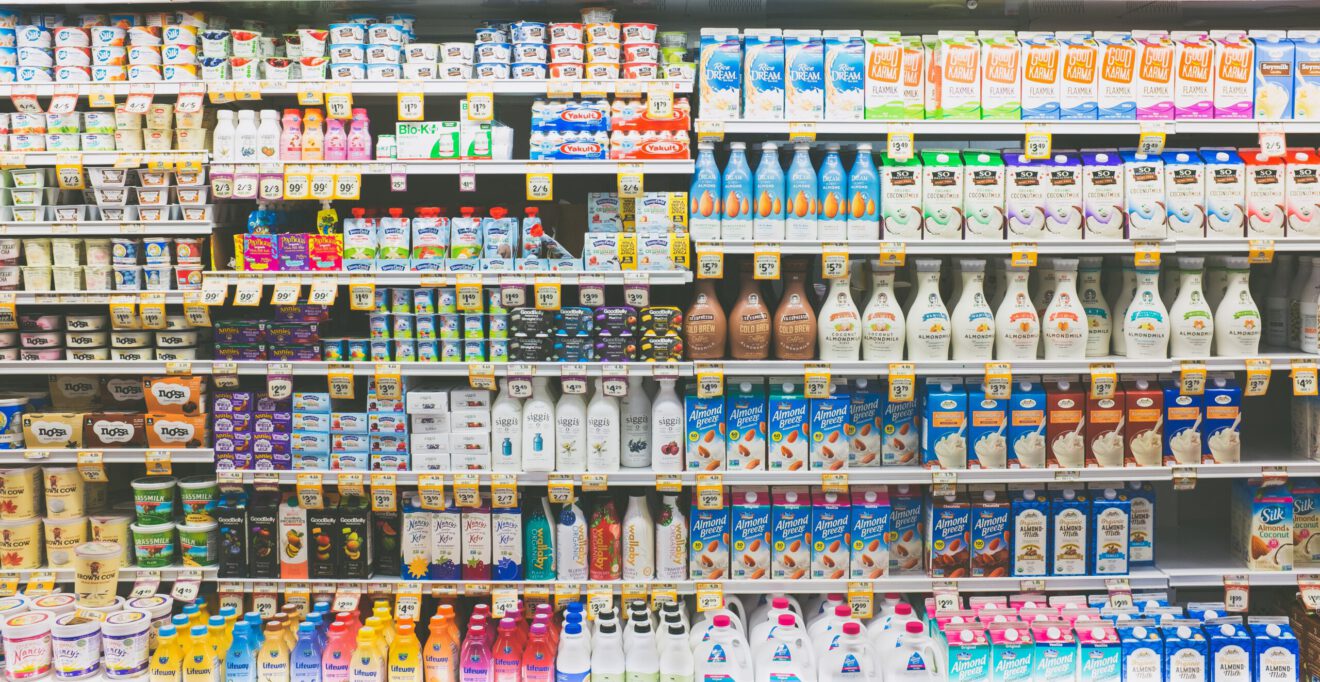Milk and dairy products have had their ups and downs over the years. From waning milk consumption to stockpiles of cheese and a recent turnaround in dairy sales, the industry has proven resilient. The ongoing pandemic has also had an effect on the industry both in terms of sales and trends toward dairy alternatives.
Early on in the pandemic, consumers stocked up on milk and dairy products, Dairy Farmers of America’s Monica Massey told Dairy Foods. School milk and foodservice have unsurprisingly taken hits this year, Massey explained, but more Americans cooking at home have contributed to retail milk sales that are currently “fairly steady.”
With dairy and plant-based alternatives taking center stage during the pandemic, which trends in the industry are coming to the forefront?
Snacking takes center stage
A consumer desire for convenient, ready-to-eat foods has left the snacking category ripe for innovation and the dairy industry has grabbed hold. Unique snacks that move beyond the traditional cheese stick or yogurt cup have been cropping up in spades. BelGioioso Cheese, for example, has introduced several snacks recently, including the Artigiano line, which consists of individually wrapped gourmet cheeses.
Snack innovation is also the name of the game with this year’s Real California Milk Snackcelerator program. Participants run the gamut from sweet to savory, with wunder Cheesecake Bites, chocolate desserts from Petit Pot, Saga Ventures Crispy Cheese Bars and WheyUp Probiotic Kefir Krisps among the companies and products in the running for $800,000 in awards.
A yogurt boom
Innovation in the yogurt market ranging from indulgence to dietary needs is expected to spur a compound annual growth rate of more than 5%, according to market research firm Technavio. Products including Silk Almondmilk Yogurt Alternative Mix-ins and lower-sugar and dairy-free Activia from Danone are all contributing to this year’s yogurt boom.
Other new yogurt products adding to the craze include Chobani’s fiber-rich Greek Yogurt with Oatmeal, Dah!’s Dahi line of Indian cooking yogurt, Tillamook’s Creamery Collection and limited-edition fall flavors from Dannon’s Light + Fit line.
Plant-based, dairy-free milks flourish
Interest in plant-based milk continues to ramp up, with the segment expected to reach $21 billion by 2026, according to research from Global Market Insights. The company points to changing lifestyles and an increased interest in veganism as reasons for the ongoing shift. Companies are taking notice, with players both large and small rolling out new and interesting plant-based and dairy-free milks.
Nestle released its oat- and pea-based NesQuik GoodNes beverage in the US earlier this year, while Take Two Foods this summer launched a first-of-its-kind Barleymilk product into cafes, restaurants and grocery stores in the Pacific Northwest and California. Dairy Farmers of America, meanwhile, has rolled out a range of Dairy+ milk blends under its Live Real Farms banner that feature a 50/50 mix of lactose-free dairy milk and plant-based oat milk or almond milk.
Chilean company NotCo, which is backed by Bezos Expeditions, recently launched its milk alternative in Whole Foods Market stores across the US. NotMilk Whole and NotMilk 2% Reduced Fat were developed using machine learning algorithms and artificial intelligence and are formulated with pea protein, coconut oil, chicory root fiber, sunflower oil, pineapple juice and cabbage juice.
Value-added products get a boost
Dairy products with a little something extra have gained in popularity thanks to a continuing consumer interest in better-for-you food options. Dairy Farmers of America’s Kemps division, for example, is launching siips, a line of shelf-stable, protein-rich canned milk. The brand features eight grams of protein per serving and three flavors.
Danone, too, is focusing on value-added products, including its Horizon Organic Growing Years milk that includes DHA Omega-3, choline and prebiotics specially formulated for children ages 1 to 5. Even smaller companies are pivoting, with New Hampshire’s Stonewall Farm moving to produce value-added cheese, butter, cream and milk for consumers.
Big brand innovations
Large companies both in and out of the dairy industry are working to bring innovative products to the forefront. Nestle, for example, has expanded its R&D Accelerator with the opening of its largest dairy and plant-based dairy startup accelerator program in Konolfingen, Switzerland. The company aims to bring products from idea to commercialization in as little as six months.
Additionally, Impossible Foods has introduced an alternative milk prototype that the company says mimics the taste, texture and solubility of traditional dairy milk. Impossible is also doubling its research and development team in an effort to reverse global warming and stop biodiversity loss.
Related stories:
- How businesses are feeding the cravings of the comfort- and convenience-centric consumer
- Shifts in food shopping behaviors due to COVID-19
- What’s trending for the future of food?
_____________________________________
If you enjoyed this article, you can sign up for Consumer Brands SmartBrief, FMI dailyLead or Dairy Industry SmartBrief to get news like this in your inbox. For even more great news content, sign up for any of SmartBrief’s 275+ free email newsletters today, free.
